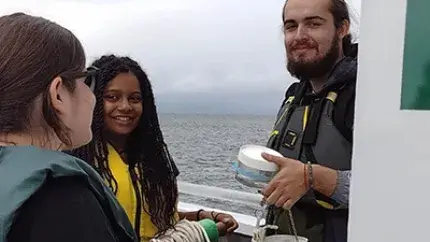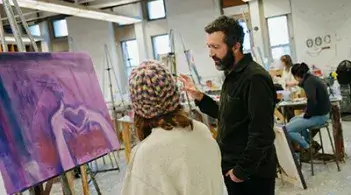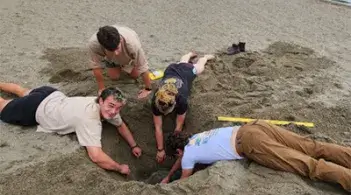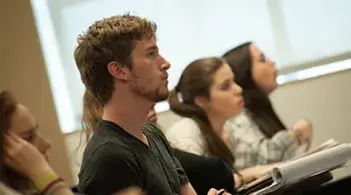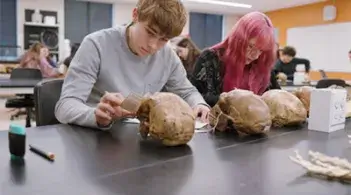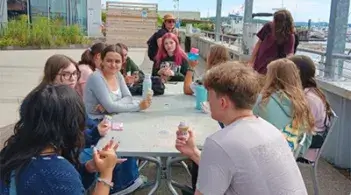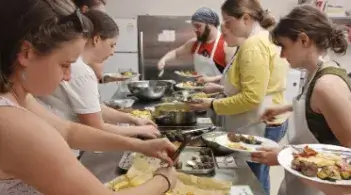Are you a first-year student looking to build a community? The Liberal Arts Scholars Program (LASP) may be for you. We bring together like-minded, academically-oriented first-year students with expert faculty in your areas of interest. As a LASP student, you’ll take 2-4 small seminar-style classes and live together, taking the conversation beyond the classroom. The 150 students in LASP are housed in the same residence hall so it is easy to form study groups, head to dinner together or watch a movie in our dedicated LASP lounge.
What Is LASP? Who Is LASP For?
Students who have been admitted to UVM’s College of Arts and Sciences by the Admissions Office for the fall semester can apply to this unique first-year program. The application is open to both students who have decided they will be attending UVM and students who are still making their college decision. Come experience these benefits:
A program with a small liberal arts college feel
A unique first-year opportunity to combine academics with a residential experience
A strong and tight-knit community living in a highly desirable residence hall
Setting you up for sophomore year and beyond (how you’ll find research, internships, and honors opportunities)
Close relationships with dedicated faculty and staff
